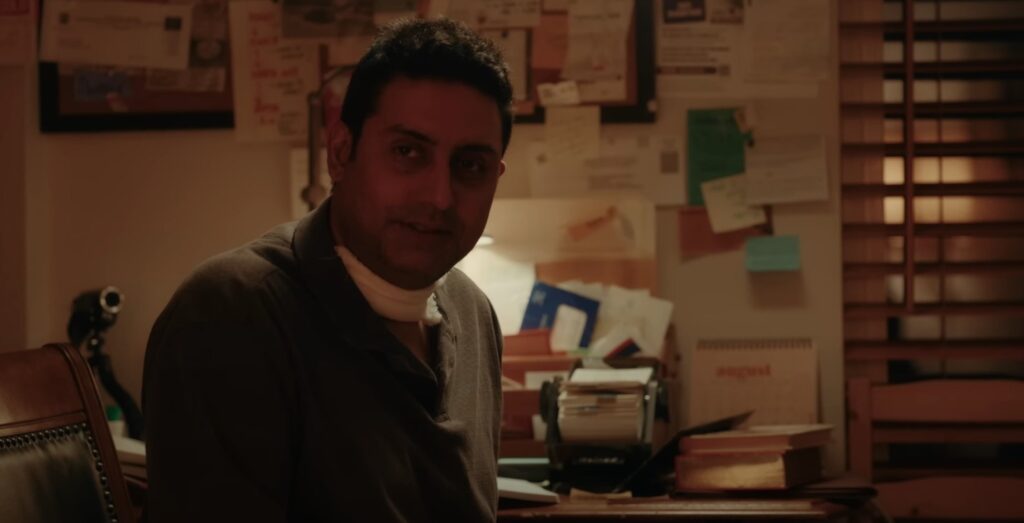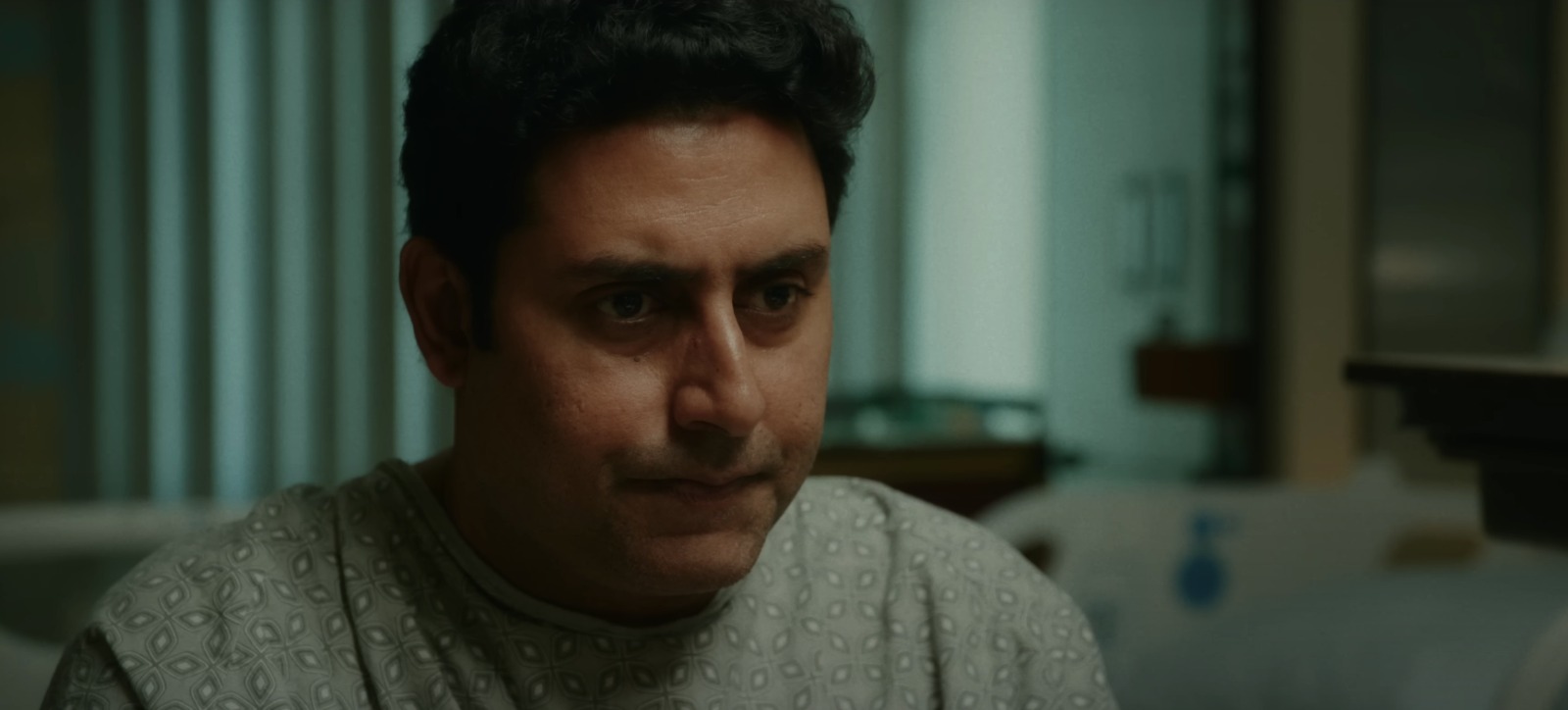Shoojit Sircar has made eight movies so far, each unique in its own way. For my money, he’s one of the best working directors in the Hindi film industry, or even Indian cinema in general.
His latest venture, I Want to Talk, is about an ailing man named Arjun Sen, based on his memoir Raising a Father. Not many filmmakers in India are making movies like this, and that’s precisely what makes Sircar a true auteur.
The film reminded me in parts of The Sky is Pink, another true story where Aisha Chowdhury, suffering from a medical condition, drives the narrative with her voiceovers—sometimes funny, sometimes emotional, and always engaging. Similarly, Arjun’s eccentricities and idiosyncrasies bring his story to life. The fact that he’s a real person makes the film feel grounded.

I’m not sure if it’s Arjun himself or Ritesh Shah’s brilliant writing, but you can’t help connecting with him. He isn’t particularly likable—he’s a typical corporate guy who overanalyzes everything. Yet, he refuses to be reduced to a number or a statistic. He wears his humanity as a shield, striving to give his life meaning. Watching him rise from his lowest point and work toward bettering himself was profoundly rejuvenating, making me reflect on the value of life.
The story isn’t just about him, though. It also explores the rocky relationship he shares with his daughter, Reya. Despite his struggles, Arjun tries to care for her, while Reya poses dilemmas and questions that challenge his worldview. Their interactions made me appreciate my own parents more—being a parent is undoubtedly hard.

What the film does exceptionally well is show both sides of the story. Yes, it’s difficult to be a father, especially when you’re hurting. But it’s equally tough being the child of a divorce. In one of the film’s most heartbreaking moments, Reya uses the word “shuttlecock” to describe her experience of being shuffled between her parents. That scene broke me.
Through Arjun and Reya, I experienced something I’ve never been through (and hopefully never will). That’s the power of great writing and magnetic performances.
This kind of mid-budget venture also provides opportunities to deserving artists. Taba Chake, a darling of the indie music scene, has composed a soundtrack that fills the gap left by recent films—fresh, meaningful, subtle, and soft. The background score by George Joseph and Koyna is melodious, somber, and melancholic, powerful enough to move you even in scenes without dialogue.
Speaking of dialogue, it never feels contrived or cinematic because it’s drawn from lived experiences. Lines like, “Pain is a promise that life always keeps,” left me gasping. I doubt I’ll forget that anytime soon.

The film also beautifully explores a doctor-patient relationship that transcends professional boundaries. Decades of interaction create an inevitable connection—something so human and relatable. The supporting characters reinforce the message that everyone is fighting their own battles, whether internally or externally. Not everyone can talk about it, but this film encourages us to do so.
The characters here don’t hold back—they say what they feel. When Reya tells Arjun, “You only love yourself,” he responds honestly, “What’s wrong with that? Only when I love myself will I be capable of loving others.” That’s the strength of the writing.
Another remarkable quality is the film’s mature humor. It’s situational, deadpan, intelligent, or dad-jokey but never offensive or insulting. It almost feels like European humor in its restraint.
No matter how solid the story, a film needs a strong central performance to captivate the audience—and Abhishek Bachchan delivers what might be the best performance of his career. He is Arjun Sen. With excellent hair and makeup, Bachchan disappears into the role, leaving no trace of himself for two hours—it’s only Arjun Sen.
By the end of the film, my heart was full. As a doctor, I’ve seen my fair share of patients, some worse off than Arjun. Yet, this movie filled me with newfound empathy. That, to me, is a win—for Sircar, Bachchan, and cinema itself.

Chaitanya Tuteja is someone who enjoys sharing his thoughts on books, movies, and shows. Based in India, he appreciates exploring different stories and offering honest reflections. When not reflecting on his favorite media, Chaitanya enjoys discovering new ideas and embracing life’s simple moments.

